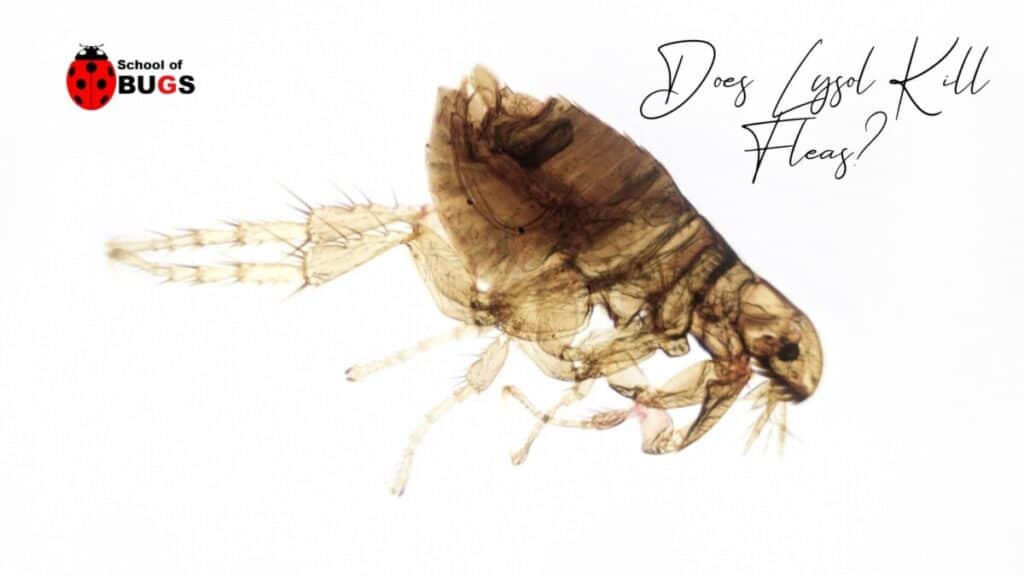
When flea season rolls around and you have pets, it can get pretty awful in a hurry. Most people don’t realize that if fleas are on your pets and in your house, they’re also covering your lawn, especially if there are a lot of leaves on the ground.
Even a full-blown professional treatment isn’t enough to slaughter them all in one go-round. Most people require multiple treatments along with chemicals purchased from the store and natural remedies. Speaking of chemicals, Lysol is pretty potent but is it enough to kill fleas?
- Whether or not Lysol kills fleas
- The toxicity of Lysol to your pets
- The killing power of direct contact with fleas and Lysol
- How to properly use Lysol for fleas
- Lysol as a preventative
- Alternatives to Lysol
- Types of Lysol sprays and their effectiveness against fleas
Does Lysol Kill Fleas?
Lysol is pretty potent and it will kill fleas. However, it only kills fleas when it’s sprayed directly on them. Fleas jump away very quickly, so even if you hit a few directly, the rest will jump before the droplets settle on them.
As a disinfectant, Lysol is brutal on the body of a flea. That’s because part of a disinfectant includes properties that go into insecticides. When Lysol lands on a flea’s body, the toxicity level is high enough to kill it quickly.
Not only does Lysol kill fleas on contact, but it also makes the room smell fresh and clean, so you get the best of both worlds.
Unfortunately, once the Lysol droplets settle onto the carpet, upholstery, dog bed, or whatever you spray it on, the toxicity levels drop off dramatically.
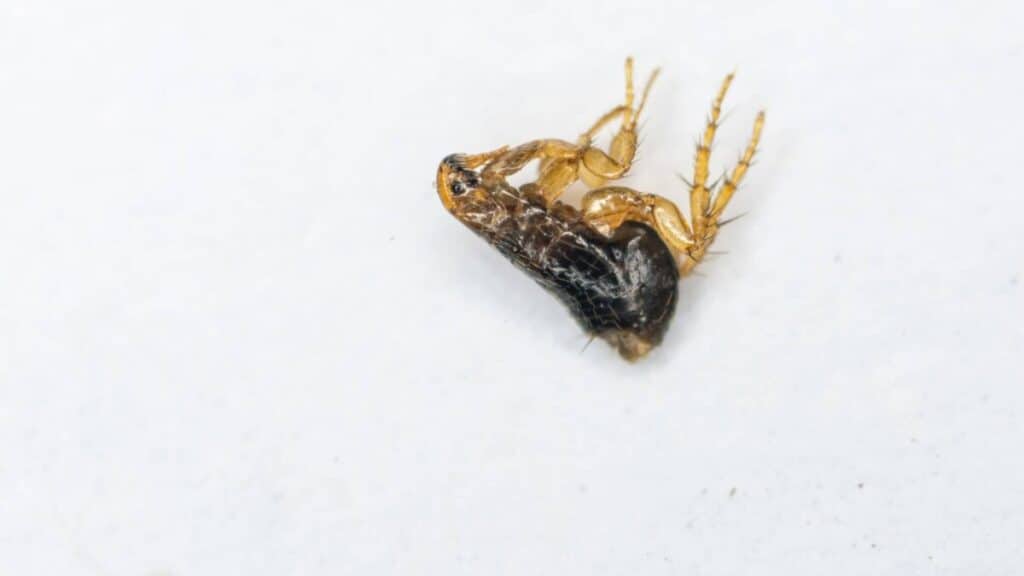
That’s why Lysol only kills fleas via direct and immediate contact. It’s a quick solution, especially if you are not experiencing a full-blown invasion.
The problem is, the moment you detect the first flea in your house it usually means the full-blown infestation is either well underway or sitting right on your doorstep.
Using Lysol to Kill Fleas
- Go to any area where your pets have recently laid or sat or any areas you have identified as a flea problem
- Spray Lysol directly onto the surface of these areas
- Clean and sweep the area immediately around it
- Apply Lysol to the surrounding surfaces as well
- Work your way outward, in a ring, cleaning and applying Lysol
- Use concentrated amounts of Lysol and a scrub brush for thick carpeting
Does Lysol Repel Fleas?
The reason you want to work your way outward from the location of the fleas is that the goal is to eliminate the immediate problem.
Working your way out takes care of any lingering fleas on the perimeter. Lysol is a deterrent to fleas as they can’t stand the aroma and will avoid the area.
As you work your way out, thoroughly cleaning all of your hard surfaces, you create an ever-expanding area that’s essentially a no-go zone for fleas.
They won’t return to the places you disinfect and working your way outward drives them out to the farthest extent Lysol is capable of.
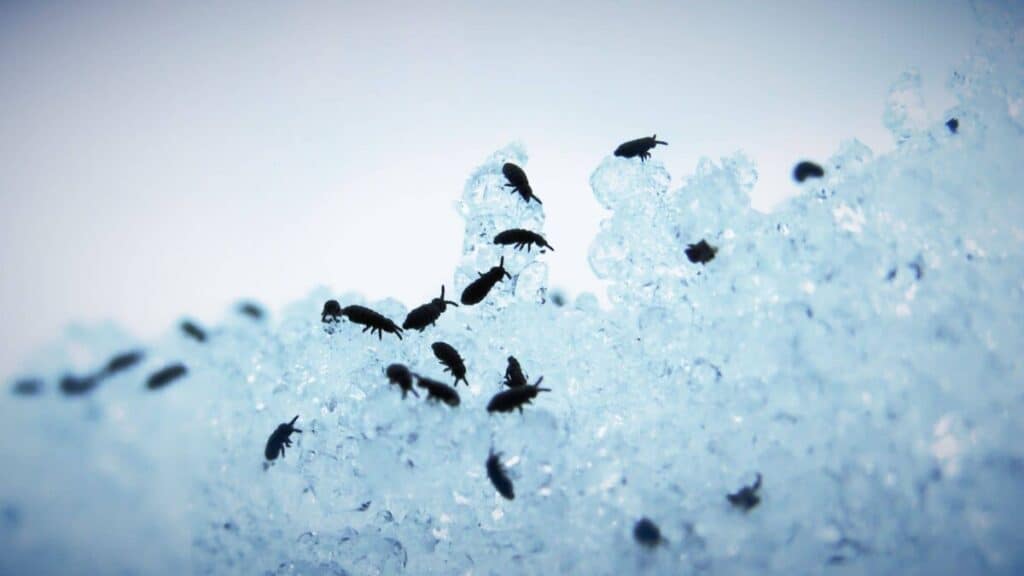
The ethanol and antiseptic properties in Lysol are what smells so bad to fleas and they will avoid it unless they have no other choice.
Unfortunately, Lysol doesn’t last forever and since it can’t kill fleas outside of direct contact, it won’t penetrate some of the hard-to-reach areas where fleas love to hide.
At some point, they will return, especially if your yard is full of them and your pets have fleas on them as well.
It’s especially burdensome if you have a dog because you have to let them outside to go potty. Fleas love to jump on and hitch a ride inside the house.
Speaking of pets, while most people understand that insecticides are not very good for pets (in most cases they’re very toxic to animals), Lysol may be considered more tolerable.
It’s a common household cleaner and dogs, cats, or other animals might easily be overlooked.
Is Lysol Toxic to Pets?
Lysol does contain specific properties that are considered toxic to dogs and cats. They are probably toxic to other animals as well, depending on what kind of pets you have. The main ingredient in Lysol (in terms of what is toxic to dogs) is Phenol.
You should keep dogs and cats well away from Lysol until it’s had some time to dry out. If animals ingest the Phenol, you’ll know it pretty quickly.
It has a disastrous effect on their gastrointestinal system and can cause ulcers, diarrhea, vomiting, and various oral issues, none of which are good.
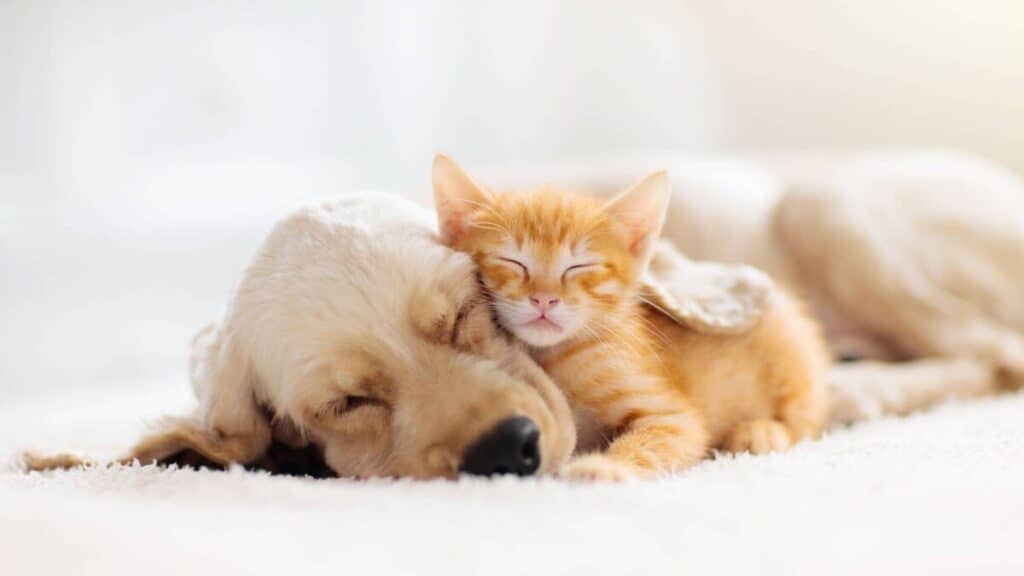
Lysol is even worse for cats than it is for dogs. While it would take quite a bit to become lethal to a dog, its lethality is even higher with cats. They happen to have a more severe reaction to the stuff than dogs do.
With cats, Lysol attacks the liver. You don’t want your cat to be in the same room that’s been treated with Lysol and you should keep your cat out until the Lysol has had time to absorb into the hard surface, dissipate, or dry out altogether.
Are Certain Lysol Sprays More Effective at Killing Fleas?
There is no known difference between one type of Lysol and another type, in terms of aromas and concentration. The same chemicals that eat away the exoskeletons of fleas exist in every variation of Lysol.
Since all of them are just as effective at killing fleas on direct contact, the only potential benefit comes in the form of aroma.
Fleas hate lemon and the smell of lemon. Lemon-scented Lysol is more of an effective deterrent of fleas than standard Lysol or Lysol with other aromas.
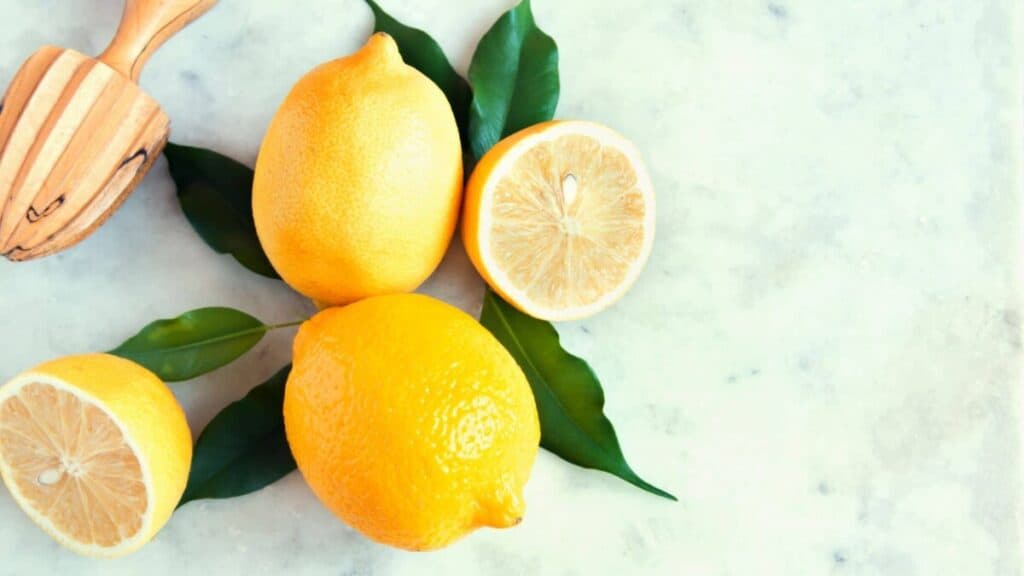
Lemon juice is considered to be an effective deterrent to fleas, so you’re getting two for the price of one with lemon-scented Lysol.
How to Use Lysol to Kill Fleas in Thick Carpet
When you have a thick carpet, a good spray with some Lysol probably won’t be enough to get the job done.
Fleas are the turkeys of the insect world—very skittish and spooked at every movement or change in the air pressure.
They stay deep down in the fibers of thick carpet, well away from the light and people, unless they can hitch a ride on some doggy or kitty paws.
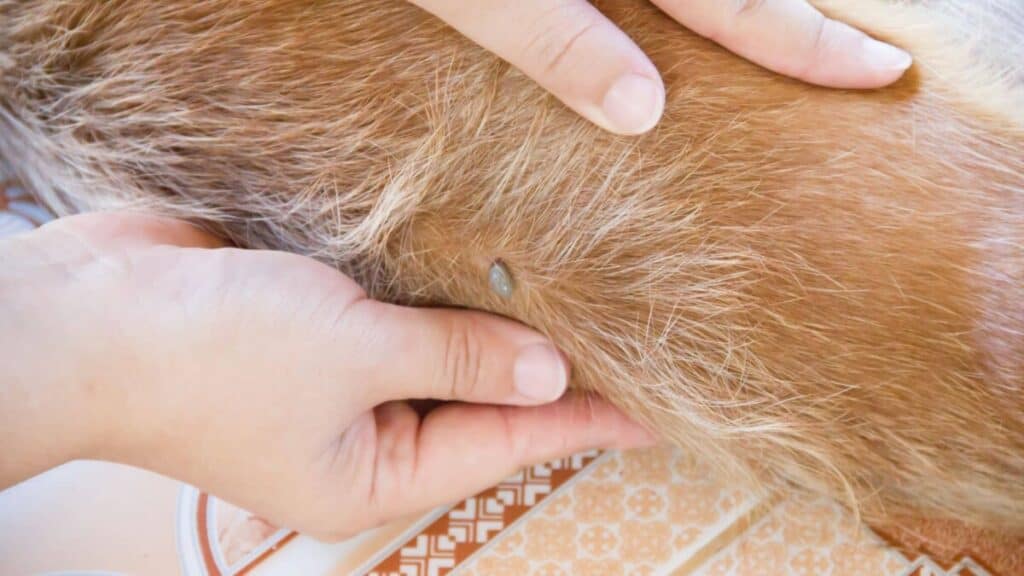
When the droplets of Lysol settle, they lack the penetrating power to go too deep.
If you’re trying to kill and prevent fleas in thick carpet, you need to saturate the carpet with it and use a scrub brush to push the Lysol down into the base of the carpet, where the fleas are playing their little games of Hide and Go Seek.
Keep in mind that many of the fleas will have time to jump away from the immediate area. You’ll have to clean the entire carpet with Lysol to create an effective barrier, kill the ones that are caught up in it, and prevent them from returning for a while.
Can You Stop a Flea Infestation with Lysol?
Not even close. There are several steps you will have to take to get a flea infestation under control and eventually eliminate them all.
It starts in your back, side, and front lawns. Though it may seem like there are thousands of fleas in your house at the height of the infestation, there are a hundred times more on your lawn.
Start by treating your lawn with an effective insecticide. If you have a weed sprayer, you can dilute Dawn Dish Detergent in water and hose down your entire yard. Dawn Dish Detergent is very effective against fleas.
The inside of your house has to be both treated and disinfected as well. Lysol comes in after everything is treated and the infestation is either in the process of being controlled or eliminated.
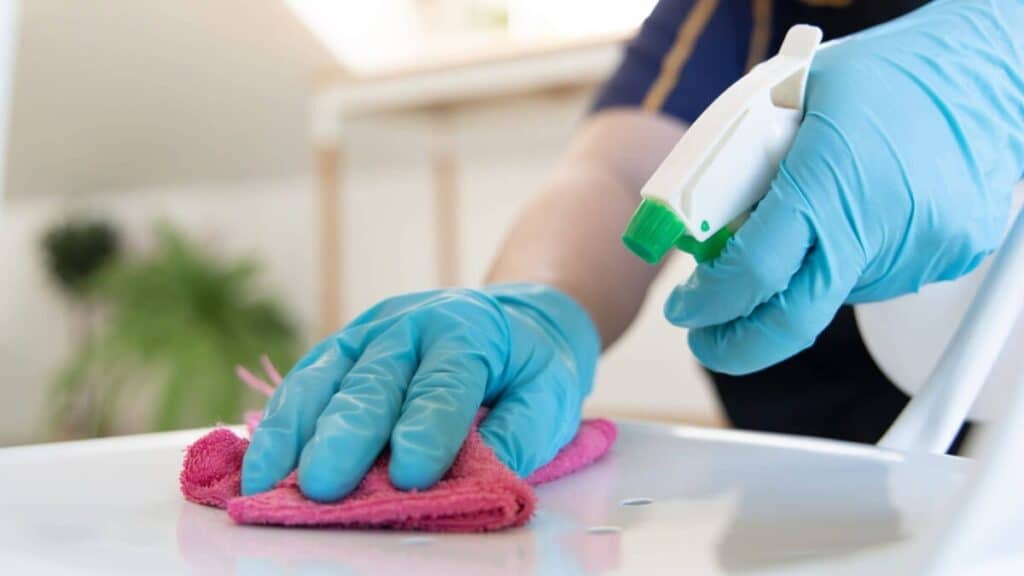
Lysol everything from that point on. Cleanliness throughout the house is an effective deterrent against more than just fleas, so it’s always a good idea to stay on top of your cleaning routine.
Fleas prefer warm, dark, moist environments. Be sure to target all of the areas that meet that description and scrub them clean with Lysol.
The Lysol will keep them from returning to that area. It won’t last forever though, so you need to give your home the Lysol treatment at least once a week.
What are Some Alternatives to Lysol?
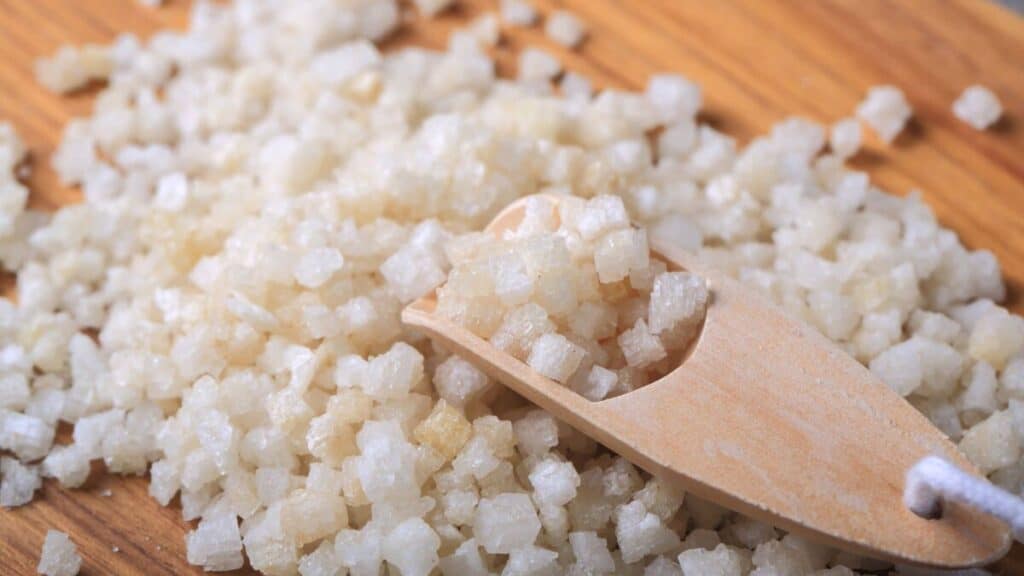
Lysol isn’t the only thing that wreaks havoc on a flea’s exoskeleton. In terms of killing power, it’s not even that high on the list. Some of these alternatives are simply preventatives and some kill better than Lysol.
- Dawn Dish Detergent
- Coconut Oil
- Epsom Salts
- Essential Oils
Dawn Dish Detergent is an effective flea killer, perhaps more so than Lysol, as it can kill fleas without direct contact, although it’s not nearly as good as an insecticide.
If you prefer not to have those kinds of chemicals in your house, Dawn is a good option.
All you have to do is dilute a good portion of it in a 2 or 3-gallon weed pump sprayer. Hose down all of the areas we mentioned above and use the stuff in your mop water as well. You can even safely bathe your pets in Dawn.
When you lather it into their coats, you will see the fleas falling off in droves. However, Dawn doesn’t last long in a dog’s or cat’s coat and they will pick up more fleas the moment they go outdoors again.
Coconut oil is an excellent alternative but only as a preventative. Fleas hate the smell of it and will stay out of direct contact with it as much as possible. Plus, a good coconut oil spray will make your home smell like tropical beachfront property.
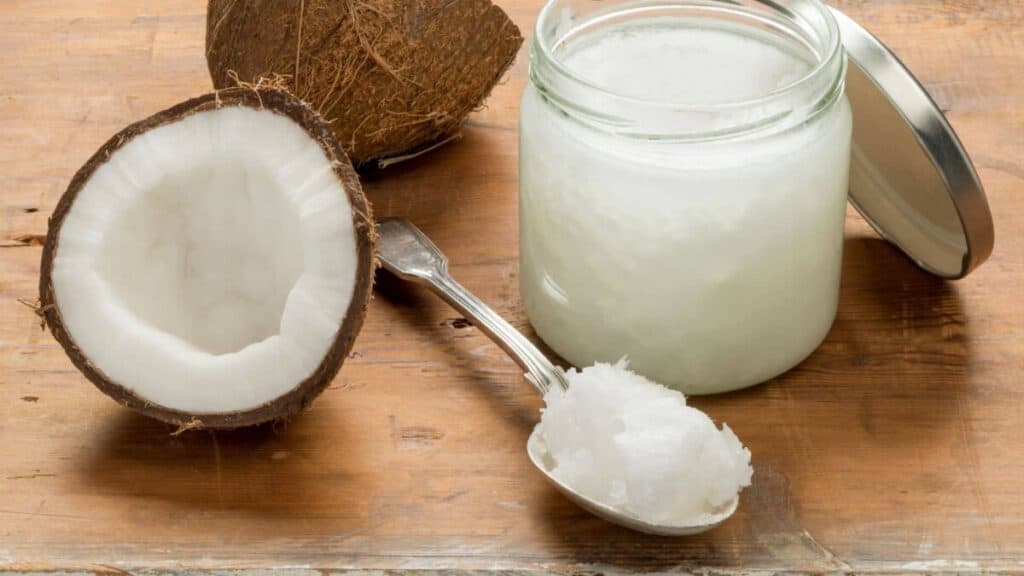
Essential oils and Epsom Salts are highly potent and they will kill fleas on contact as well as act as a long-term preventative. Like Lysol, they will continue to deter fleas from returning so long as the aroma holds.
Epsom salt also wipes out eggs, so you can destroy the fleas along with their entire life cycle. Lysol won’t kill eggs, so Epsom Salt is the perfect, long-term solution.
All Things Considered
Lysol is a decently effective killer of fleas as well as a deterrent. While it kills fleas on contact, it won’t kill them if it’s not directly sprayed on them. Lysol can’t kill flea eggs, so it won’t interfere with the life cycle of fleas.
If you’re looking for something to keep the house clean, smelling clean, and free of fleas, Lysol is the answer, but only after the flea infestation is well and truly behind you.
Alright, that’s it for this article, here are a few hand-selected articles that you might also find interesting reads:
I’ve seen one flea; should I be worried?Will Freezing a Mattress Kill Flea Eggs?
How to Get Rid of Tiny Black Bugs on My Plants
Recent Posts
Tiny Black Bugs in Bathroom NO WINGS: What They Are and What to Do!
Finding tiny black bugs in your bathroom can be uncomfortable, to say the least. Especially if they are persistent, or they appear in very large numbers, which they often like to do. When it...
Tiny Black Bugs in Plant Soil - What Are They & What To Do About It
A short horror story: You get a new houseplant. You do your best to take care of it. You’ve ensured that it has the right soil, the right amount of sun, it gets enough water. And then one day, you...

